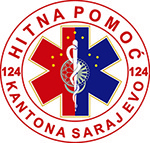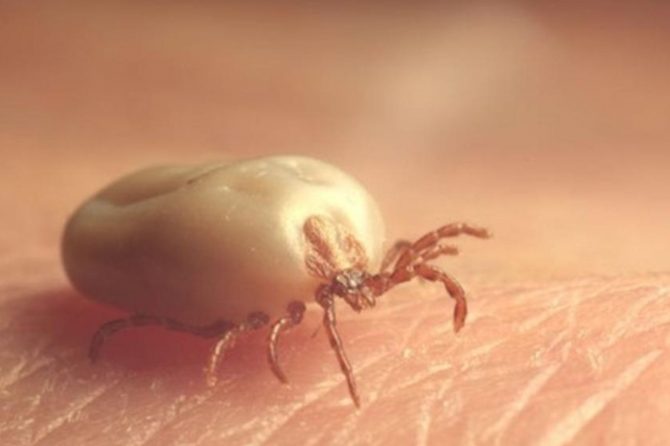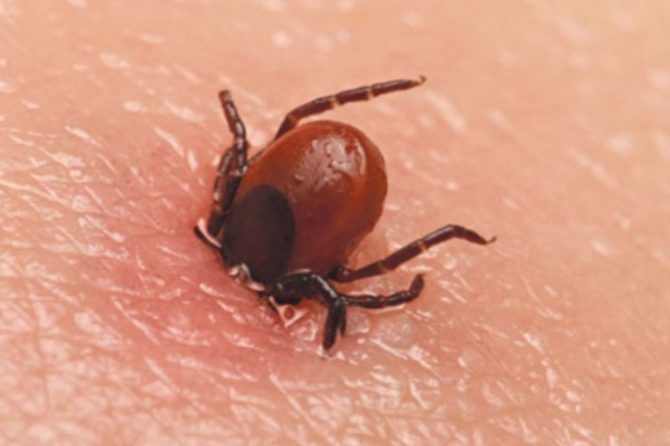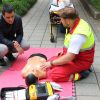The summer season carries with it public health risks, and this especially refers to the appearance of insects, some of which can be vectors (vectors) of various diseases (vector diseases), primarily ticks, and mosquitoes.
Ticks - how to protect yourself
Fortunately, only a small number of ticks are infected with infectious disease agents. Ticks are found on the leaves and branches of shrubs and blades of uncut grass, low vegetation (up to 1 m in height) and in thickets, mostly in the ground layer of forests. Therefore, staying in nature, especially among low vegetation, is associated with the risk of possible contact with ticks, which have a pronounced seasonal activity. The season of their greatest abundance is in spring and early summer (April-July). People who frequently or recreationally spend time in nature in areas of natural tick hotspots (foresters, forest workers, soldiers, mountaineers, hunters, hikers, tourists, etc.) belong to the risk group exposed to ticks.
This is an annual period in which the occurrence of ticks is very pronounced, and therefore enhanced personal protection measures are recommended to citizens.
• During the stay in nature it is necessary to have appropriate clothing and footwear (long sleeves, socks tucked into socks, closed shoes),
• Avoid dark-colored clothing that is harder for the tick to spot and materials such as wool and flannel, as ticks are easier to attach to,
• Walk on marked paths, avoid crawling through bushes, lying on the ground, putting clothes on bushes and ground,
• Apply repellents (tick repellents) to naked and exposed parts of the body and possibly to clothing (use them according to the manufacturer's instructions - be sure to check the product instructions!),
• After returning from nature, it is necessary to inspect clothing and footwear, and make sure you have a tick on your skin or clothing, in order to remove it as soon as possible. There is usually enough time for this because the tick, after reaching the host, "walks" for a long time (and several hours) looking for a suitable place to bite,
• When returning from nature, change your clothes and carefully examine the whole body (with the help of a mirror or another person so that invisible parts of the body can also be examined),
• Search special parts of the body with softer skin (behind the ear, nape, neck, groin, breasts, armpits, behind the knees, navel),
• In children, ticks will often be found on the head because the child is short and plays more in the grass than adults, so it is easier to "pick up" the tick with the head or upper body,
• After returning from nature, take a bath, wash off the applied skin repellent,
• If you notice a tick, remove it from the skin as soon as possible.
Recommended measures in case of a tick bite, when it is already attached to the skin
If you notice a tick in your skin, it is important to remove it as soon as possible - the risk of infection is higher the longer the tick is attached. It is easier to remove in the first few hours after the sting.
Remove it immediately with tweezers (wash your hands beforehand and wipe the tweezers with antiseptic), gripping it as close to the head as possible, next to the skin, and gently pulling it out of the skin.
Do not coat the tick with anything (alcohol, cream, oil, nail polish, kerosene, etc.) or "burn" it with flame, do not pull it abruptly, do not squeeze or crush it, as this causes the tick to convulse and increase the secretion of more secretions and, if a tick is infected, it causes the disease to enter the human body, making it easier to transmit the infection.
In case you fail to remove the tick, contact your family doctor at the Health Center.
The outpatient clinic for facultative immunization and antirabies protection of adults and children is located at: Ul. 11 / IV Vrazova st. (Building of the Health Center Center) Sarajevo
Working hours of the Patient Clinic: 08:00 - 15:00
All additional information and advice can be obtained by calling the phone number:
+387 (33) 667 691 and on the website of the Institute www.zzjzks.ba






